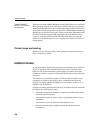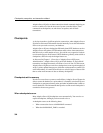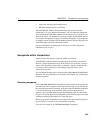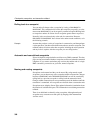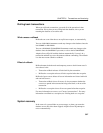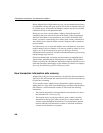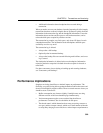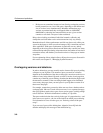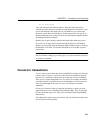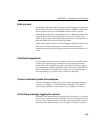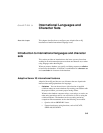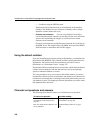
CHAPTER 8 Transactions and Versioning
309
• Additional information about checkpoints that occurred during a
transaction.
When you need to recover your database, instead of repeating all of the lengthy
transactions that have occurred, Adaptive Server IQ restores quickly from the
information in the transaction log and the checkpoint information. It uses the
information about versions and free space to roll back transactions, and to
release the disk space occupied by obsolete versions.
The transaction log requires very little space, only about 128 bytes for each
committed transaction. The information about checkpoints and disk space
availability are also very small.
The transaction log is deleted:
• Always after a full backup.
• Optionally after incremental backup.
• Always after backup files are restored following media failure, and a new
log is started.
The checkpoint information is deleted at the next checkpoint. Information
related to particular savepoints is deleted when the savepoint is released or
rolled back.
For other concurrency issues relating to backing up and restoring databases,
see “Concurrency and backups”.
Performance implications
Snapshot versioning should have a minimal impact on performance. The
flexibility you gain by being able to update the database while other users read
from it far outweigh any negative effects. There are certain resource issues you
should be aware of, however:
• Buffer consumption may increase slightly, if multiple users are using
different versions of the same database page simultaneously.
• Version management requires some overhead, but the effect on
performance is minimal. See also the bullet on disk space.
• The thread control, which determines how many processing resources a
user gets, and the sweeper controls, which use a small number of threads
to sweep dirty data pages out to disk, have a minor impact on performance.




